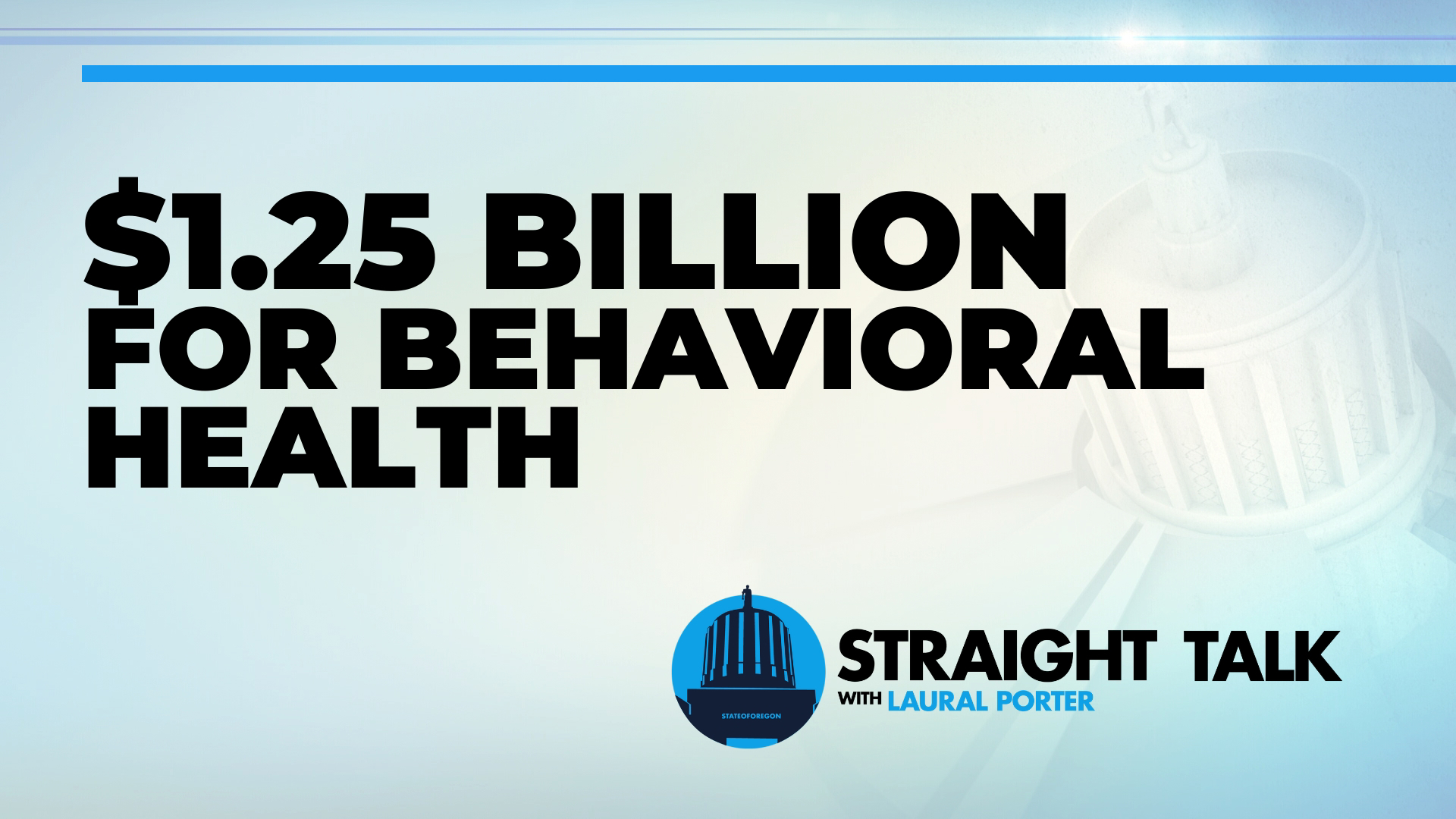PORTLAND, Ore. — Oregon lawmakers passed massive back-to-back investment packages in the state's mental and behavioral health system in the 2021 and 2022 legislative session, leveraging state general funds and federal dollars for a combined total of $1.25 billion.
Lawmakers have described the investments as "historic" and the beginning of an effort to turn around a neglected system.
Oregon state Senator Kate Lieber (D-Portland) and Rep. Rob Nosse (D-Portland) are co-leaders of the Oregon Legislature's Joint Budget Committee, and they helped lead the way to pass both packages.
The two lawmakers joined this week's episode of KGW's Straight Talk to discuss how the money will be invested and the difference they think it could make for Oregonians struggling with mental health and addiction issues.
Improvements to a neglected system
Lieber said she's seen first-hand that Oregon hasn't been able to provide mental health services to people who needed them.
She served as a federal prosecutor and spent eight years on the psychiatric security review board, which has jurisdiction over people with mental health issues in the state hospital. She also served on the board of a nonprofit that worked with people who are homeless.
"The state right now is not good, but we have made a big swing in trying to make sure we get services to people who need them when they're ready for them," she said.
Nosse represents inner Southeast Portland, and he said he's also gotten a first-hand look at the need in his neighborhood.
"Unfortunately, my constituents are seeing the mental health challenges that our state, our city, our county are experiencing every day pretty much as they drive around," he said. "It's a very pressing issue for my voters."
Both lawmakers said the historic investment represents just the beginning of an effort to improve a system that has been neglected since the 1990s.
Nosse pointed to the closure of large institutions for people with mental illness in the nineties and a subsequent lack of follow-up to provide adequate community-based housing and mental health services.
"This is the first time we've made the kind of investments we should have made a long time ago when we began a process of de-institutionalizing and having people with mental illness be in the community again," he said.
Slow but widespread impact
Lieber called for the state to take a three-legged stool approach that includes investing in substance use treatment, mental health treatment and housing.
"This investment package is really the start," she said. "My hope is we look back on this time and say 'this is the time that we started to make progress within our systems.' And if we get it right, we're going to make progress in our criminal justice system. We are going to make progress in homelessness, we are going to make progress quite frankly in our child welfare system. It touches everything."
RELATED: Straight Talk: Oregon leaders call Intel's $20 billion expansion in Ohio a 'wake-up call' for Oregon
Both Nosse and Lieber asked for citizens' patience as the funding begins to flow to the programs, and assured voters that investment of more than a billion dollars will make a difference.
"Senator Lieber and I, and a lot of our colleagues, are watching how that investment is rolling out, and please know that it might not happen fast enough for you, but things are in the works and we are paying attention," Nosse said. "We believe the investments we have made are going to show up at some point and make a difference."
Future federal help needed
Lieber said it's going to take government, nonprofits and Oregonians working together to make sure the behavioral health system works to help those who need it — and the state will also need help in the future from the federal government.
"It's going to take the federal government because that is really going to be where we need to access the funding," she said. "We are not going to be able to do this alone. But it's going to take time."
Lieber and Nosse also discussed specific areas where the $1.25 billion will be invested, systems in place to make sure the money works the way it's supposed to, and how they'll measure success.
"Straight Talk" airs Friday at 7pm, Saturday and Sunday at 6:30pm.
"Straight Talk" is also available as a podcast.

